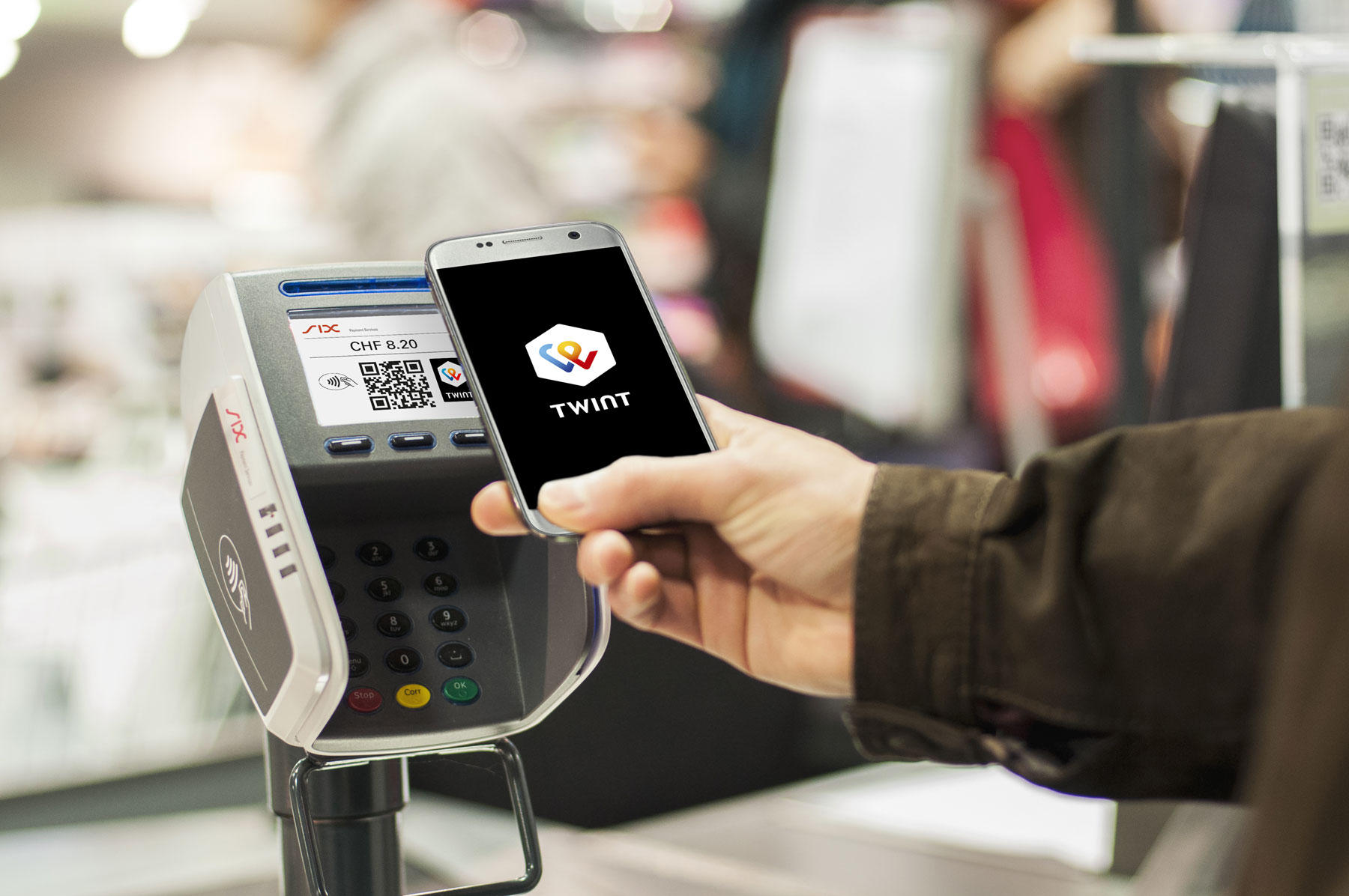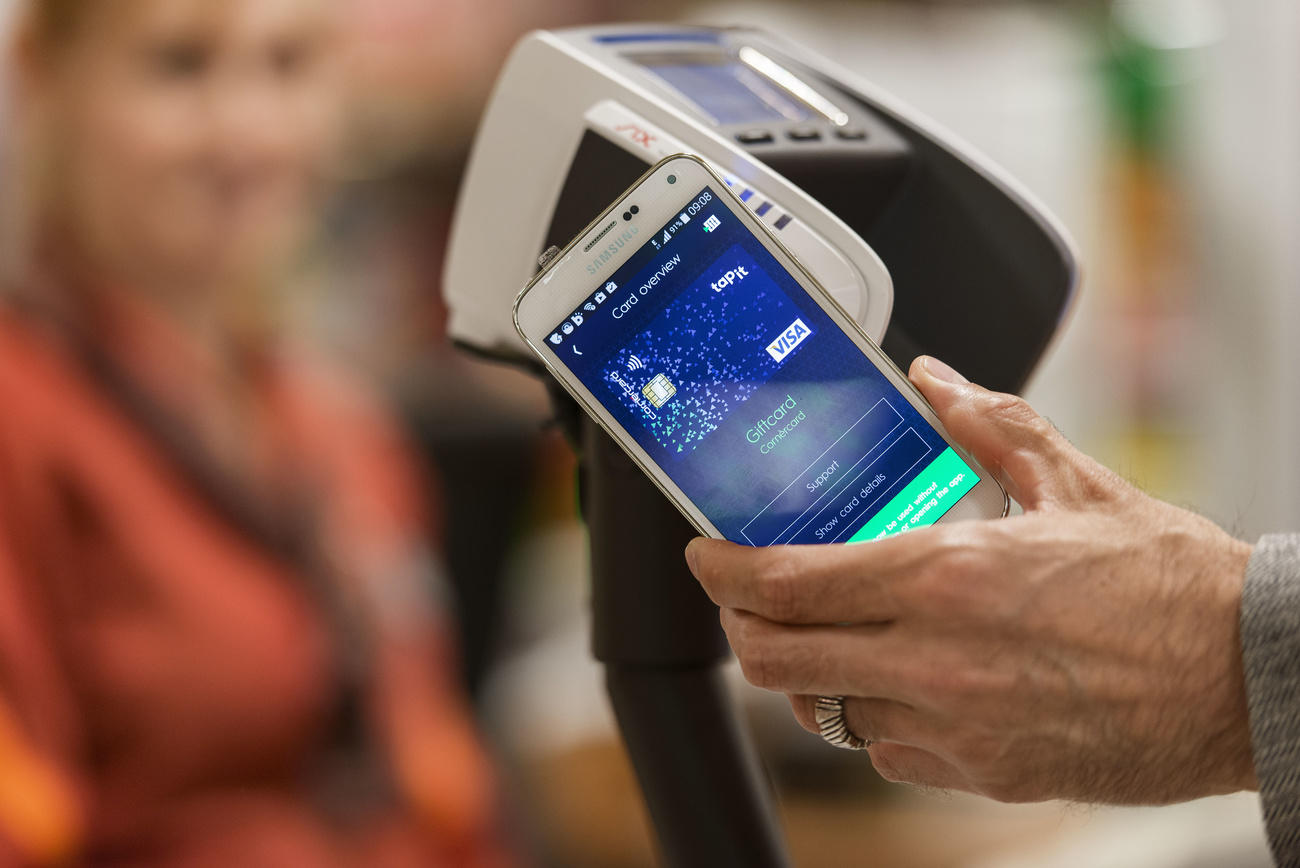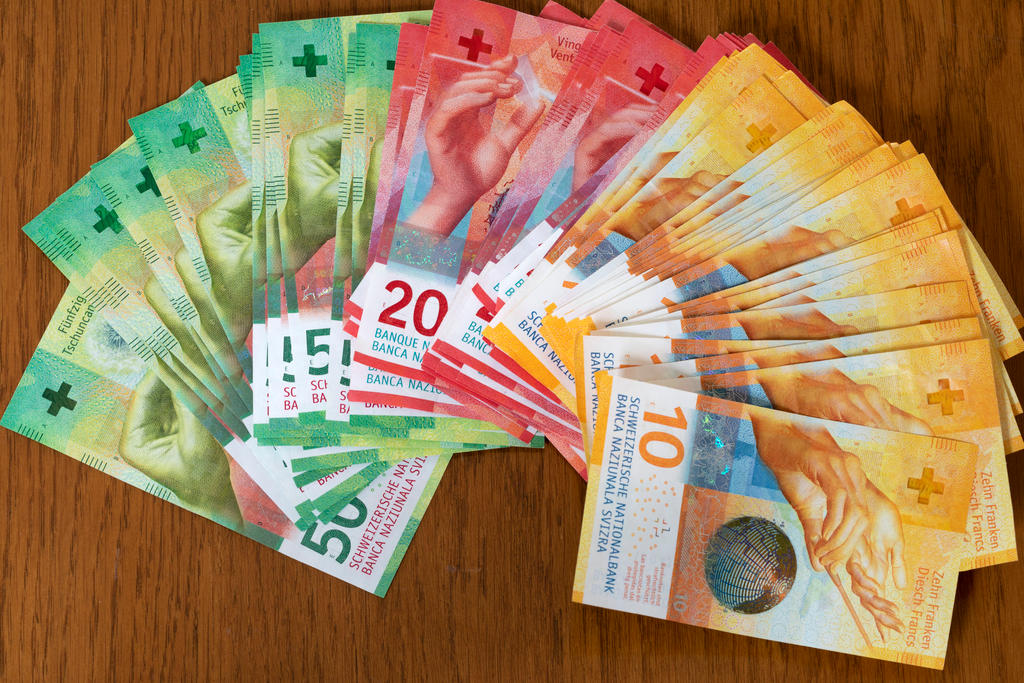Covid-19 strains Swiss love affair with cash

Cash is king in Switzerland, unlike in countries such as Sweden and Norway. But an increasing number of people are now spurning cash and relying on plastic because of coronavirus. Will this trend continue after the crisis?
Since the Covid-19 pandemic began, the idea of cash being the only pure form of money has been replaced with fears that it helps spread contagion. People are trying to touch as few things as possible, and that applies to cash too.
Flu viruses stay on banknotes for up to two weeks, according to a study by the Geneva University Hospital. At the peak of the pandemic in Switzerland, internet searches about the health risks of cash have exploded. Cashless and contactless payment methods have become buzzwords.
Because many shops were forced to close their doors temporarily, more transactions were carried out online. Some shops have now re-opened with signs saying they do not accept cash for the time being.
“The effect has been significantly fewer cash transactions than normal,” said Andreas Dietrich, head of the Institute for Financial Services Zug (IFZ) at the Lucerne University of Applied Sciences and Arts.
According to economist Tobias Trütsch, a payments specialist at the University of St Gallen, initial figures show a change in payment behaviour. “Current data on the use of credit cards reveals that contactless payments, and especially online payments, increased proportionately during the lockdown.”
Fewer withdrawals
Fewer people are making cash withdrawals at ATMs. PostFinance told the Neue Zürcher Zeitung newspaper that withdrawals fell by nearly 50% between March 16 (when the Swiss lockdown began) and mid-April.
Contactless payments are also on the rise as people prefer to avoid keypads on card readers whenever possible. At the beginning of April card providers doubled the limit for contactless payments from CHF40 ($42) to CHF80.
Swiss payments app Twint, which is owned by Swiss banks, PostFinance and the Swiss stock exchange operator SIX, has seen demand leap.
Since the pandemic struck Switzerland, up to 45,000 new users a day have signed up to Twint. This is far above the normal rate, bringing the number of users to more than 2.5 million. In addition, an extra 11,000 vendors have joined the payments system in recent weeks.
“In the area of e-commerce, we even see at least a doubling of transactions, in some areas even a sixfold increase,” the company said in a statement. The provider expects this trend to continue “because the topic of hygiene will remain very important in the future”.
‘Permanent change’
A Swiss National Bank payments surveyExternal link in 2017 found that around 70% of all purchases were made in cash, 22% by debit card, 5% by credit card while other cashless payment methods, such as PayPal, weighed in at 3%.
The more up-to-date Swiss Payment Monitor 2019External link, by the University of St Gallen and the Zurich University of Applied Sciences, found cash being used in 48% of payments. At least a third of cashless payments were also contactless. But this survey had a different sample group and did not ask the over-65s how they paid.
According to the Swiss Payment Association, the credit card market is close to saturation, yet the use of cards for payments continues to grow.
By contrast, cash has proportionally decreased by 1-2% compared with other payments in the last 20 years, says Andreas Dietrich. And he suspects the coronavirus factor to increase this trend.
“I think that payment behaviour will change permanently,” says Tobias Trütsch. “Above all, I see potential in mobile or contactless payments. People have increasingly learnt to appreciate this option because they were practically forced to do so.”

In compliance with the JTI standards
More: SWI swissinfo.ch certified by the Journalism Trust Initiative






You can find an overview of ongoing debates with our journalists here. Please join us!
If you want to start a conversation about a topic raised in this article or want to report factual errors, email us at english@swissinfo.ch.